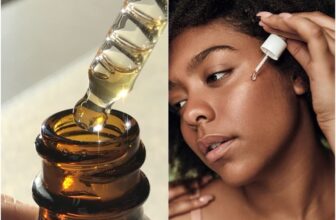Choosing The Right Moisturizer For Your Skin
Choosing the right moisturizer for your skin is crucial in maintaining a healthy and radiant complexion. Whether you have dry, oily, or combination skin, understanding the different types of moisturizers and their ingredients is essential in making an informed decision.
Our skin is a remarkable part of who we are and deserves our utmost care. Maintaining the health and radiance of the skin is important, and moisturizing plays a key role in achieving that. Regular use of a moisturizer can greatly improve the overall health and appearance of our skin. It effectively tackles issues like dryness, roughness, and flakiness, and can even help reduce the visibility of fine lines and wrinkles.
By replenishing and preserving the skin’s moisture levels, moisturizers contribute to a smoother, softer, and more glowing complexion. Although you might assume that all moisturizers are similar, merely serving as a cream to hydrate your face, it is not entirely accurate.
There is a wide variety of moisturizing products, in creams, lotions, gels, oils, and serums. They all feel, smell, and provide different skin benefits according to different skin types and individual preferences. Some moisturizers may also include additional beneficial ingredients like antioxidants, vitamins, or SPF for sun protection. Selecting the right moisturizer tailored to your skin is crucial for maintaining healthy skin.
Ahead are some basic guidelines to follow for achieving well-hydrated, glowing skin using moisturizers.
What Are Skin Moisturizers?
Moisturizers, also referred to as emollients or hydrators, are skincare products designed to improve and maintain optimal hydration levels of the skin. They work by creating a protective barrier on the skin’s surface, which serves to prevent water loss and retain moisture. A well-formulated moisturizer typically combines various active ingredients, including humectants, occlusives, and emollients, each with a distinct role in hydrating and nourishing the skin.
Humectants are ingredients that have the ability to attract moisture either from the environment or from deeper layers of the skin. They bind this moisture to the outermost layer, known as the stratum corneum. Glycerin, hyaluronic acid, and urea are common examples of humectants used in moisturizers. Occlusives, on the other hand, create a physical barrier on the skin’s surface, effectively reducing water loss through evaporation.
By sealing in moisture, they help to prevent dryness and maintain hydration. Petrolatum, mineral oil, and silicones are frequently used occlusives in moisturizers, while emollients contribute to the softening and smoothing of the skin by filling in gaps between skin cells and restoring the skin’s natural lipid barrier. This results in an enhanced texture and increased flexibility. Plant oils like jojoba oil and shea butter, ceramides, and fatty acids are commonly found as emollients in moisturizing products.
Crème de la Mer Moisturizing Cream
Factors to consider when selecting a moisturizer
Know your skin type
Understanding your skin type is the foundation for choosing an appropriate moisturizer. Common skin types include dry, oily, combination, and sensitive skin. Dry skin calls for nourishing formulas that provide ample hydration. On the other hand, lightweight and oil-free options work best for oily skin. Combination skin might require a moisturizer that strikes a balance between moisture and oil control while sensitive skin tends to benefit from the use of gentle and hypoallergenic moisturizers.
Assess your skin concerns
Take into account any specific skin issues you might be experiencing, such as acne, signs of aging, uneven texture, or hyperpigmentation. Then, seek out moisturizers that target these concerns by incorporating beneficial ingredients like salicylic acid for acne-prone skin, hyaluronic acid for hydration, retinol for anti-aging effects, or niacinamide for brightening and improving skin tone.
Hydro Boost Hyaluronic Acid Water Gel Moisturizer
Consider the formulation
Moisturizers come in various formulations, including creams, lotions, gels, serums, and oils. Creams are generally thicker and provide more hydration, making them suitable for dry skin. Lotions are lighter and absorb quickly, making them ideal for oily or combination skin. Gels are lightweight and refreshing, while serums often contain concentrated active ingredients. Oils can provide intense nourishment and are beneficial for dry or mature skin.
Read the ingredient list
Get to know the ingredients found in moisturizers to make sure they suit your skin’s requirements. Also look out for essential hydrating components like hyaluronic acid, glycerin, or ceramides. If you have sensitive skin, it’s best to steer clear of potential irritants such as fragrances or alcohol. In case you have specific concerns, you might find added benefits from ingredients like antioxidants (such as vitamin C or green tea) or peptides.
SkinCeuticals Triple Lipid Restore 242
SPF protection
If sun protection is a priority for you, consider moisturizers with built-in SPF. Look for broad-spectrum protection (UVA/UVB) with an SPF of at least 30. This helps shield your skin from harmful UV rays and prevent premature aging.
Patch test and trial
Before committing to a new moisturizer, perform a patch test on a small area of your skin to check for any adverse reactions. Also, give the product a trial period to evaluate its effectiveness and compatibility with your skin. Remember, results may vary, and finding the right moisturizer may involve some experimentation.
Peter Thomas Roth
Water Drench Hyaluronic Acid Moisturizer
It’s worth noting that what may be effective for one person might not have the same results for someone else. If feasible, consider trying out samples or travel-sized versions of moisturizers before committing to a full-size purchase. More importantly, it’s highly recommended to seek advice from a dermatologist who can provide tailored recommendations based on your specific skin type and concerns.










